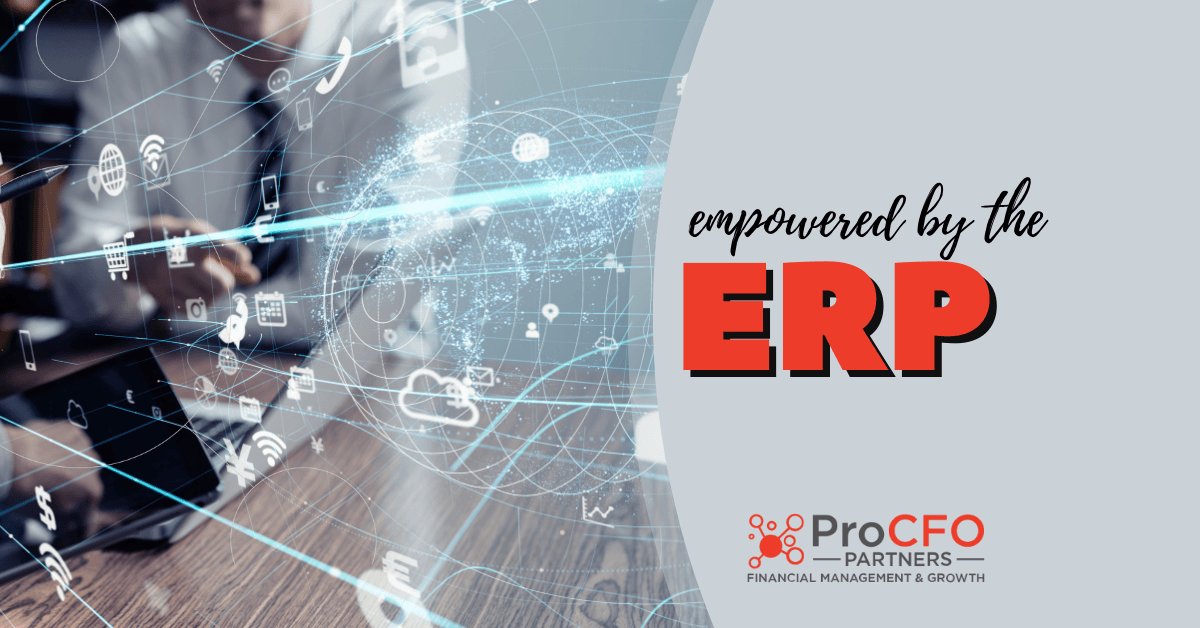Choosing Manufacturing ERP: Factors to Consider
Aug 12, 2021
The ERP, or Enterprise Resource Planning platform, helps power the logistics, data, and even productivity in your business. Do you have one? Do you need one? Some smaller businesses have devised their own “ERP” without even realizing it through systems like Google Docs or QuickBooks, while others are fully engaged with robust platforms like SAP or Oracle. Read on as we explore the value of the ERP, how small and mid-market companies should consider the ERP for their business, and the value of considering your ERP like a business asset.
Choosing the Right ERP For Your Business
ERP platforms vary in size, sophistication, features and of course costs. A small Mom & Pop shop that basically just bills out a few invoices each month will have simpler needs than an enterprise manufacturing business that has complex processes. On one end, then, existing features in a system already in use, like QuickBooks, might be sufficient. On the other, a powerful ERP from SAP or PeopleSoft can be the right option.
There’s no “right” criteria for choosing what’s best for your company, but generally the larger your operation, the more employees you have, the more vendor relationships you manage, or the more sophisticated your financial functions, the more robust your ERP needs will be. We can simplify all that even further and say the more revenue you make, the more likely your needs for a more sophisticated ERP.
The Value of Your ERP
There are a few ways to think about the return on investment for your ERP. On one hand, an ERP that integrates into other aspects of your business helps create more insight, better information flow and ultimately better efficiencies. This creates a cost savings for you as employees are spending less time stuck in redundant tasks or inefficient workflows or processes. For instance, an ERP that integrates accounting software with inventory management, shipping information and service requests means technology is simplifying the jobs of people. Your employees aren’t taking phone calls, opening up applications, or following up with vendors – instead, the ERP is managing data to provide those insights.
On the other hand, your ERP – which helps manage your company’s data and information – should be considered a business asset. Imagine you’re preparing to sell you company, but you’ve been managing increasingly complex information and processes with Google Docs. A potential buyer is going to be much less enthusiastic about that kind of information management than if a single, simple dashboard were available, such as with a proper ERP.
Getting Started with The Right ERP
Robust ERP solutions will have training and learning materials available to help you and your team to more with their products, and consultants are available with specialize expertise to help you choose and ultimately curate the right information management and resource planning system for you. Ahead of that, it’s helpful for you to have your internal processes, such as they are, documented and understood. The more you can “map out” your information realities and needs, the more precise you can be in finding an ERP solution that does what you need it to do and solves for any inefficiencies you’re experiencing.
If you’re already using an ERP and are finding that you’re dealing with frustrations or that people on your team are simply bypassing the ERP because they find it cumbersome or difficult, it might be a symptom you’ve outgrown that solution and are ready for something else. Again, document what’s holding you back. This can also help you determine if you have a people issue or a process issue. Any ERP, after all, is only as good as the people using it and engaging with its capabilities each day.


